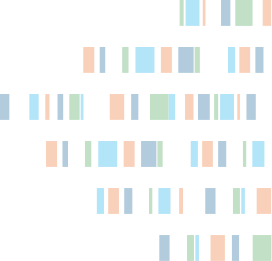Abstract Relationships of the Neotropical finches in the genera Euphonia and Chlorophonia (Fringillidae: Euphoniinae) have been clarified by recent molecular studies, but species-level relationships within this group have not been thoroughly addressed. In this study, we sampled specimens representing every recognized species of these genera, in addition to 2 outgroup taxa, and used target enrichment to sequence thousands of ultraconserved element (UCE) loci, as well as mitochondrial DNA reconstructed from off-target reads, from each specimen to infer these relationships. We constructed both concatenation and coalescent-based estimates of phylogeny from this dataset using matrices of varying levels of completeness, and we generated a time-scaled ultrametric tree using a recently published fossil-based external calibration. We found uniformly strong support for a monophyletic subfamily Euphoniinae and genus Chlorophonia, but a paraphyletic Euphonia across UCEs and mitochondrial genomes. Otherwise, our inferred relationships were largely concordant with previous studies. Our time-tree indicated a stem divergence time of 13.8 million years ago for this lineage, followed by a relatively young crown age of only 7.1 myr. Reconstructions of biogeographic history based on this tree suggest a South American origin for crown Euphoniinae, possibly resulting from a transoceanic dispersal event from the Eastern Hemisphere, followed by 2 dispersal events into the Caribbean and as many as 6 invasions of North America coinciding with recent estimates of the age at which the Isthmus of Panama had completely formed. We recommend splitting Euphonia and resurrecting the genus Cyanophonia for the 3 blue-hooded species more closely related to Chlorophonia. Based on our results, we suspect that there is undescribed species-level diversity in at least one, possibly many, widespread and phenotypically diverse species.

Home » Mitochondrial genomes and thousands of ultraconserved elements resolve the taxonomy and historical biogeography of the Euphonia and Chlorophonia finches (Passeriformes: Fringillidae)
Publications
Mitochondrial genomes and thousands of ultraconserved elements resolve the taxonomy and historical biogeography of the Euphonia and Chlorophonia finches (Passeriformes: Fringillidae)
myBaits
myReads
Daicel Arbor Biosciences
5840 Interface Dr. Suite 101,
Ann Arbor, MI 48103
1.734.998.0751Ann Arbor, MI 48103
©2024 Biodiscovery LLC
(d/b/a Daicel Arbor Biosciences)
All Rights Reserved.
(d/b/a Daicel Arbor Biosciences)
All Rights Reserved.
Design and development by Raincastle Communications.
